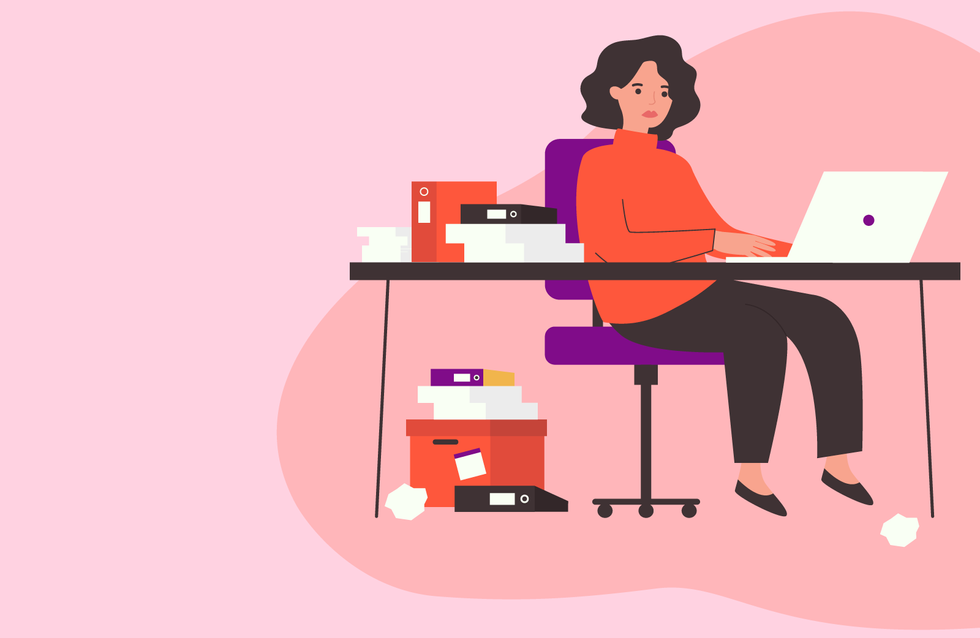

1 in 4 people who menstruate in the US face menstrual problems so serious that they affect quality of life, even at work.
Many of them deal with uterine health issues, such as:
-
Fibroids, noncancerous growths in the muscular wall of the uterus, affect about 8 in 10 women at some point in their lives.
-
Endometriosis, when tissue similar to the lining of the uterus grows outside the uterus and attaches to other organs, affects more than 1 in 10 women.
In addition to pain, these conditions can cause many other symptoms that can interfere with work. They include:
-
Heavy bleeding
-
Anemia caused by blood loss.
-
Nausea
-
Stomach aches
-
Increased need to urinate
-
Diarrhea, constipation and other gastrointestinal problems.
What is a “normal” period?
Your period is considered heavy if:
-
Lasts 7 days or more (not including spotting)
-
You lose more than ⅓ cup of blood during your period
-
You have to change your pad or tampon more than once every hour.
-
It passes clots the size of a quarter or larger.
You deserve support in the workplace
All of these symptoms can be embarrassing, especially in the work environment. But they are common if you have a uterine health problem.
While you figure out how best to manage your condition with your healthcare provider, ask for accommodations at work such as:
-
Free menstrual health products (sanitary pads, tampons, period panties, etc.)
Other types of help are also available. Talk to your healthcare provider about treatments and options to help you manage your condition.
This resource was created with the support of Sumitomo Pharma, a member of HealthyWomen’s Corporate Advisory Board.







